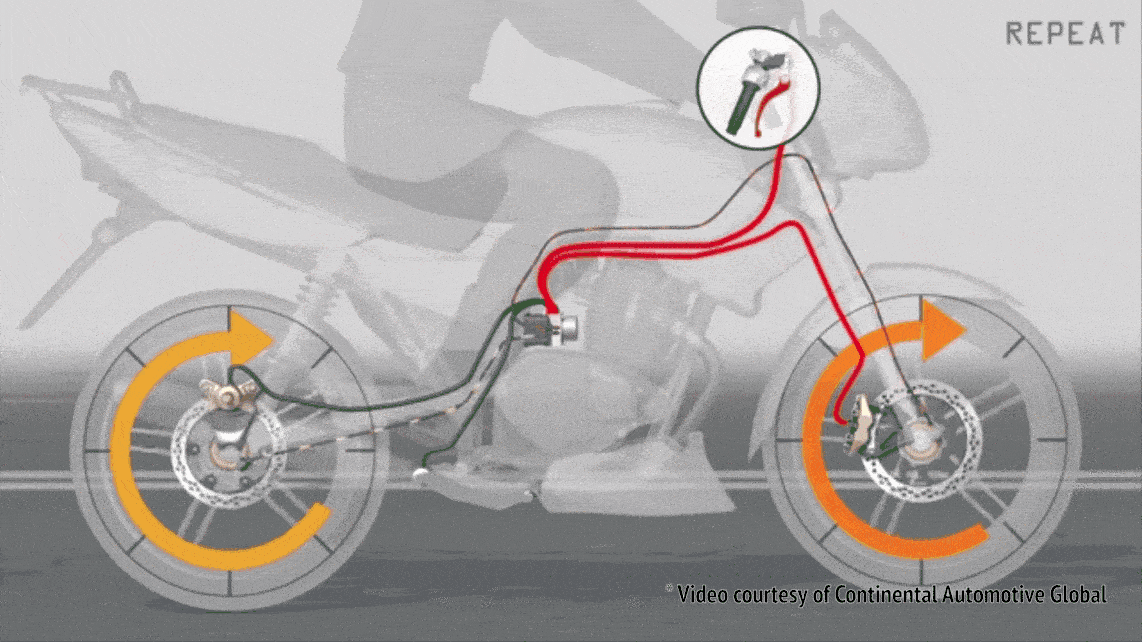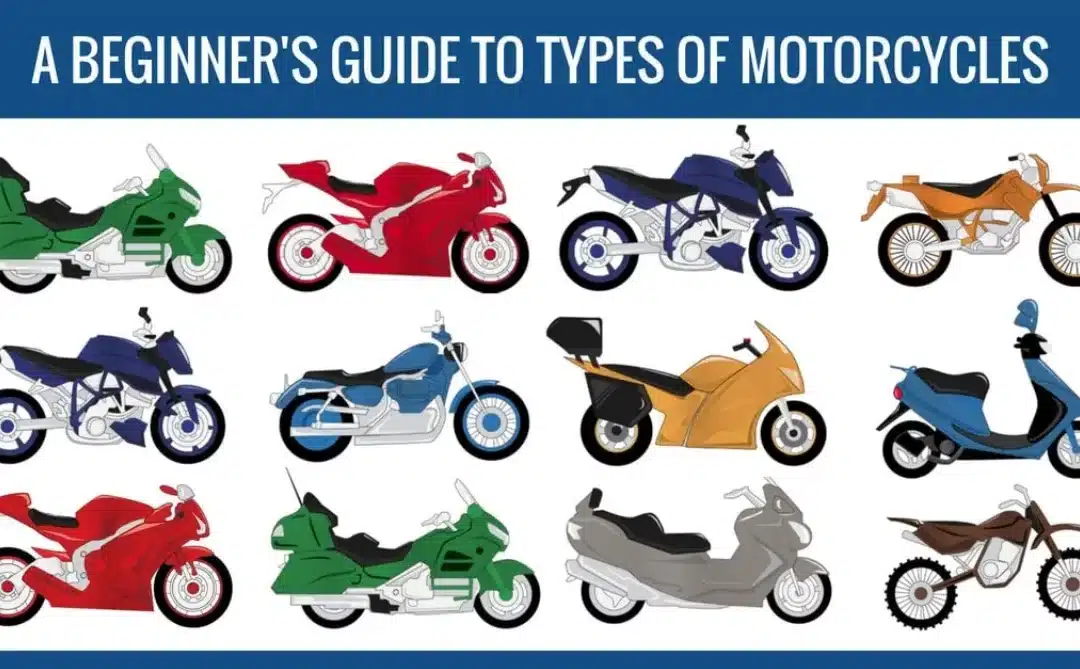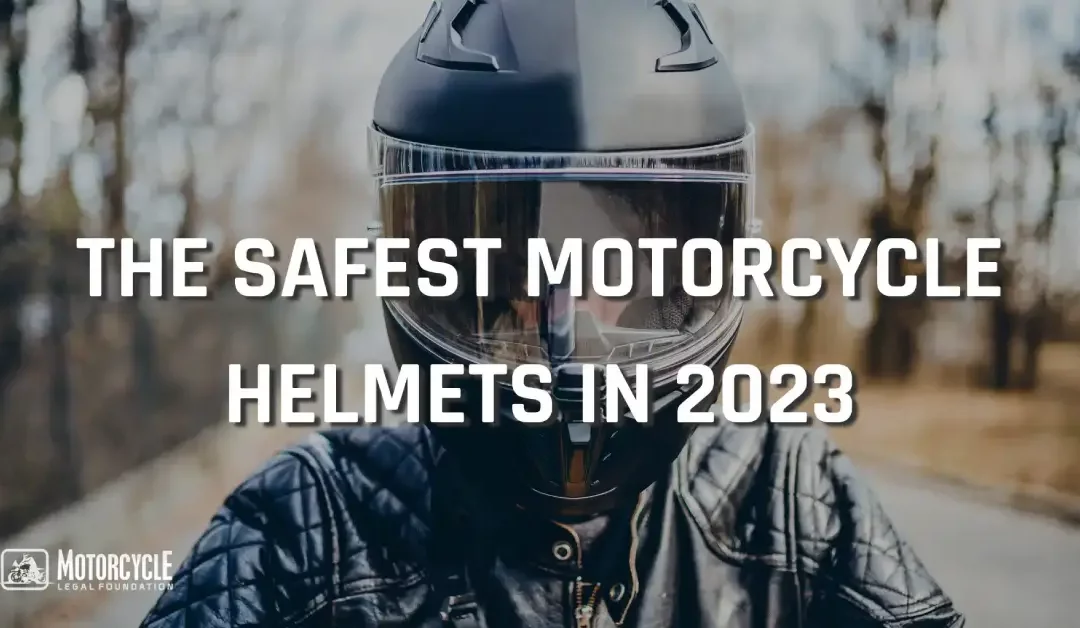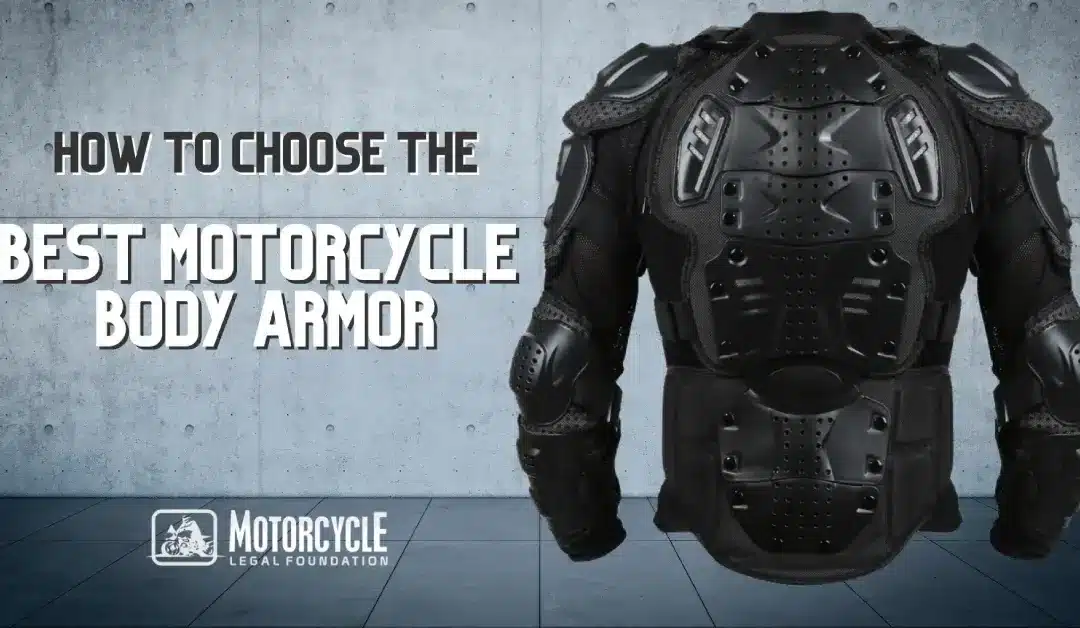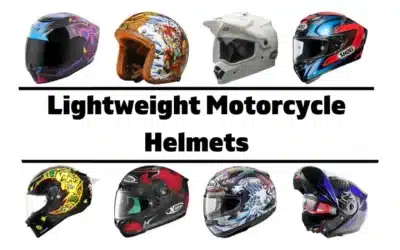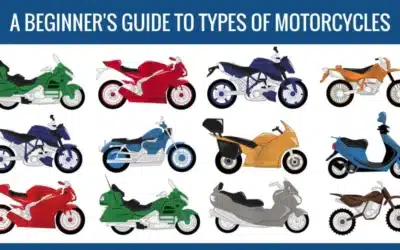If you’ve taken a motorcycle safety course in the past, you’ll know that swerving and stopping is a common topic discussed throughout the course. There is a large debate on whether ABS (anti-lock braking system) should be on a motorcycle and questions surrounding what the system can do, and if it’s worth the cost and weight associated with it. It’s a highly debated topic across the motorcycle community, and we’re here to dive in with our two cents on why you need ABS on your motorcycle.
What is ABS on a Motorcycle?
You may have heard the term ABS or anti-lock braking in reference to a motorcycle, but what does it actually do? Anti-lock brakes prevent the brakes from locking and skidding the tire. The ABS uses a small metallic ring gear attached to the hub of the motorcycle wheel in conjunction with a magnetic sensor to generate an electrical signal. The ring gear is often referred to as a tone ring or tone wheel, and the signal it helps produce is sent to the ABS unit. The unit measures the frequency of the signal (think of it like an off and on switch) and how it changes to know if the motorcycle is slowing down, speeding up, or keeping a steady speed.
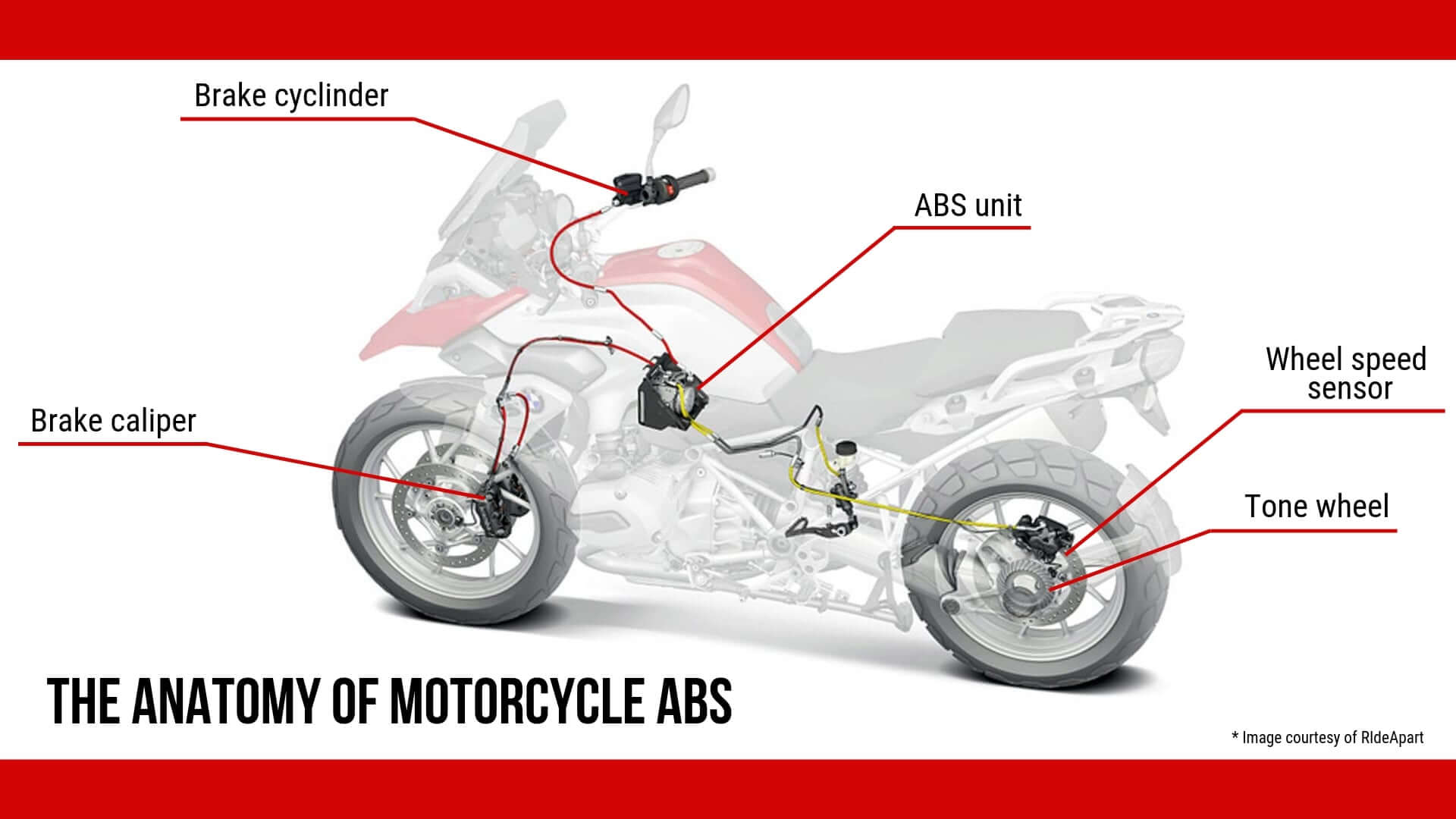
How Does ABS Work?
It’s easy to say that ABS make you stop faster or they make braking safer, but it’s a bit more complicated than that. While the wheel sensor and tone ring send a signal to the ABS unit at a frequency, how the ABS unit reacts is where the magic happens. The signals are received by an intelligent module and it essentially counts the number of times the signal is sent by the ring and sensor on the wheel. How it knows the wheel is about to lock is the dramatic change in frequency of the signal pulses (a sudden decrease) and the number of pulses reaches almost to zero.
At that point, the intelligent ABS module slightly decreases the pressure to the brake system (primarily to the brake calipers) to allow the wheels to spin and then reapply the braking force. If it detects a locking situation again, it repeats the same action. The intelligent module reads the pulses up to 100 times per second and can adjust the braking system pressure 10 times per second. It reacts far faster than most people’s’ reflexes can.
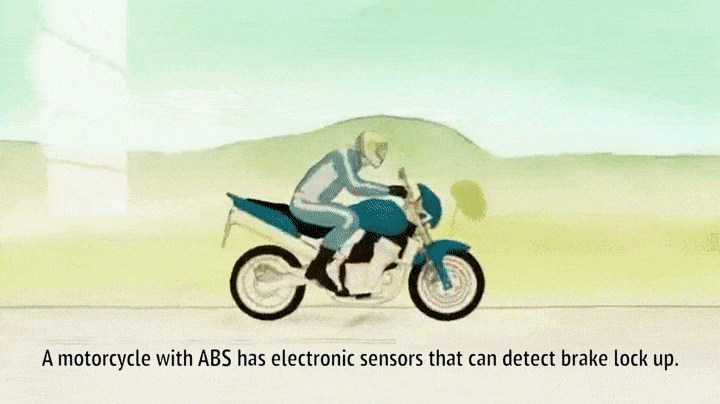
Why is ABS Important?
Although you may not frequently use the ABS, it will make a difference during the times you need it most.
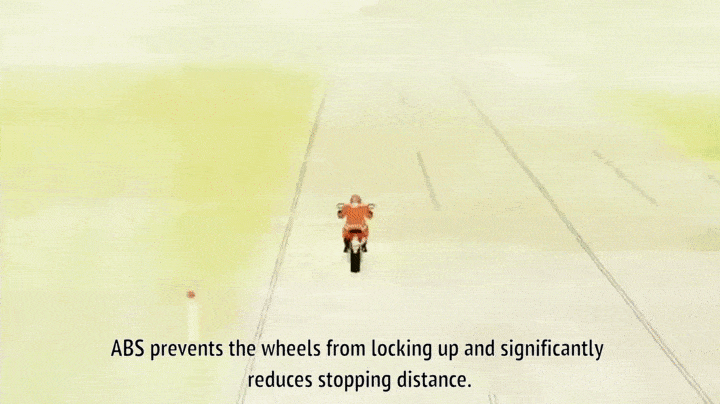
Motorcycle ABS Statistics
The Insurance Institute for Highway Safety reported that fatal crashes on a motorcycle are 31% lower when motorcycles are equipped with ABS (this is a direct comparison between the same model of motorcycle, one with optional ABS and one without.)
Highway Loss Data Institute reported that accident insurance claims for motorcycles using ABS are filed 20% less often than for motorcycles without ABS. That figure jumps to 31% when the models fitted with ABS have combined controls (when the front and rear brakes are applied together).
The Insurance Institute for Highway Safety released another report noting that motorcycles with engines 250cc and higher without ABS are 37% more likely to be involved in a fatal crash.
The Swedish Road Administration noted that all severe and fatal motorcycle accidents involving motorcycles above 125cc could have been reduced by 48% if the motorcycle had an ABS unit.
Although data shows that ABS is an added safety feature for motorcycles, ABS remains an option rather than a mandate in the United States. However, in 2012, the European Commission prompted that new motorcycles with a 125cc or larger engine sold after 2016 are required to be equipped with ABS.
Common Misconceptions of Motorcycle ABS
Despite the evidence, but there are still debates and common misconceptions on ABS effectiveness and operation.
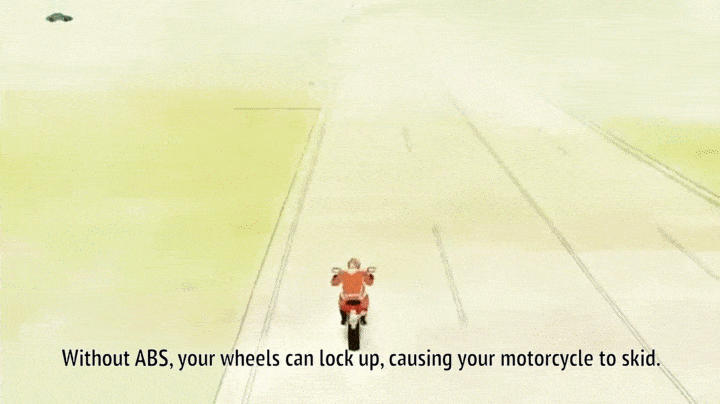
“The ABS is always working to prevent me from slowing down too fast.” This is only partly true. The ABS unit is always monitoring your braking via the signals coming from the wheel sensors. Until it detects a wheel locking condition, it doesn’t react or makes any changes to the braking pressure.
“Not every motorcycle can have ABS.” The big debate here isn’t if it technically can have ABS. It’s more about if they should, and we’ll be covering that too. There are two main types of motorcycle braking systems: conventional and combined. Conventional allows both front and rear brakes to be used independently from each other. Combined will either link one or both together, meaning applying the front also applies the rear to some degree and vice-versa. Either system can technically have an ABS.
“ABS is really heavy and adds too much weight to the motorcycle.” Early systems for motorcycles were adopted directly from the automotive industry, and that includes components from automobiles. Something that weighs 15 pounds is small compared to a 4,000-pound car, but adding that same 15 pounds to a 150-pound motorcycle definitely offers a different result. The new systems being used are designed specifically for motorcycles and can weigh as little as 1.5 pounds. That amount doesn’t add a significant amount of weight to the motorcycle, so the excuse of weight slowing you down becomes a moot point.
“ABS clutters up my motorcycle.” This one may be more of a complaint from motorcyclists that enjoy the naked motorcycle look. Motorcycles with full or even half fairings typically hide the intelligent BAS module behind the bodywork and it goes undetected.
“Motorcycles with ABS are too expensive.” If you compare a motorcycle that offers ABS and one without, the price between them can be hundreds to thousands of dollars. However, even the safest and most experienced of drivers can encounter fatal accidents. Ask yourself, how much are you willing to invest in your personal safety?
Wrap Up
The validity of ABS on a motorcycle continues to be a highly debated topic. Some feel that it should be mandated, while others will choose to buy a new motorcycle without ABS. It’s a system we endorse 100% for motorcycling. With the technology available as an option on more and more new motorcycles, the question you should be asking yourself is, “are you willing to pay a little more for safety?” Hopefully, you can answer ‘yes’ to that question and you will be riding safer on the road in the future.

